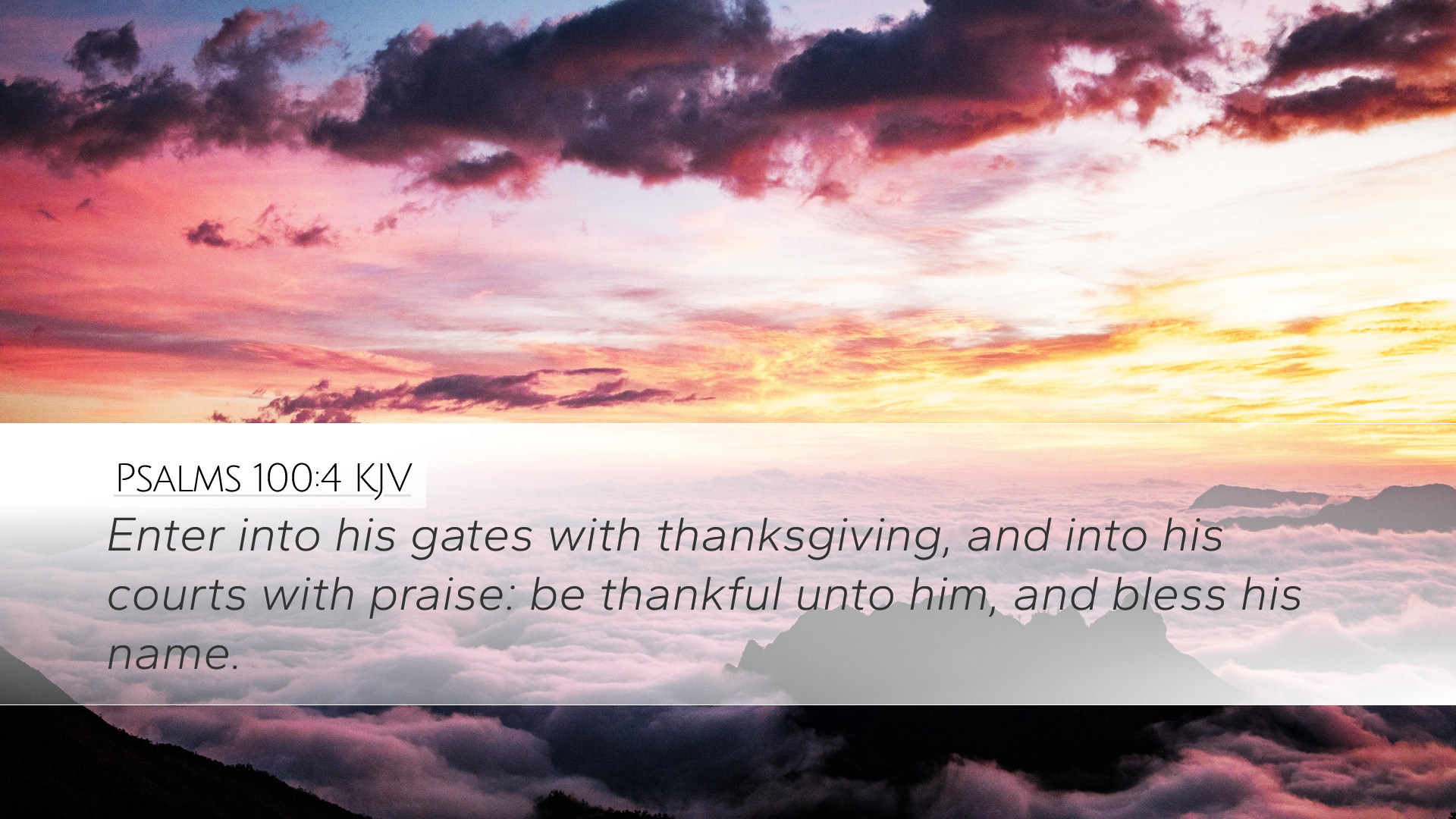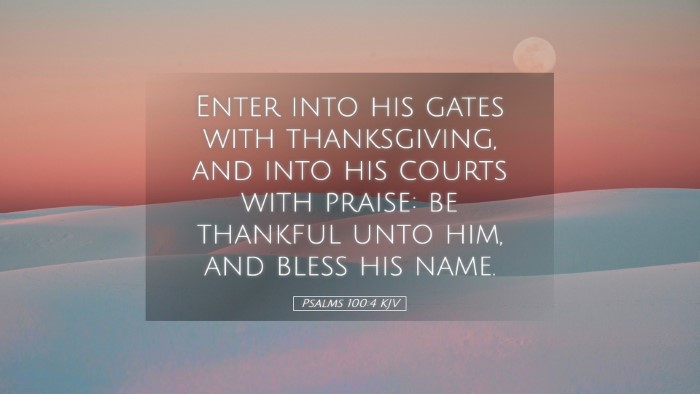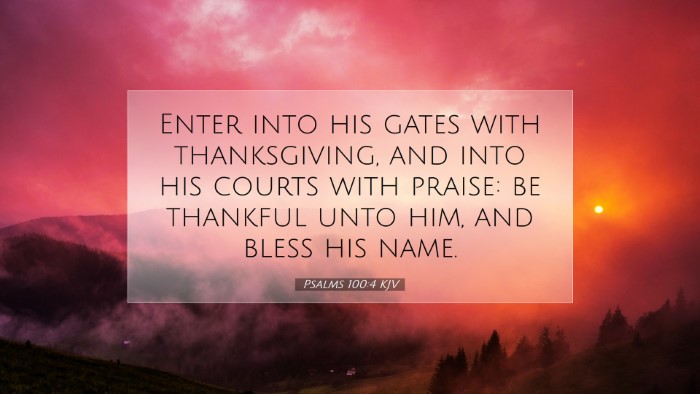Psalms 100:4 - A Study in Thanksgiving and Approach to God
Verse: "Enter into his gates with thanksgiving, and into his courts with praise: be thankful unto him, and bless his name."
This verse serves as an invitation to the people of God to approach Him not only with reverence but with a heart full of joy and gratitude. It highlights the proper attitude for worship and the essential practice of thanksgiving, which is central to the believer's relationship with God.
Historical Context and Use of the Temple
Psalms 100 is categorized as a hymn of praise, celebrating God's goodness and mercy. The mention of "gates" and "courts" reflects the practices surrounding the Temple in Jerusalem, where the Israelites would come to worship. The Temple was the focal point of their spiritual life, and the gates served as the threshold into the sacred space.
- Matthew Henry notes that the gates symbolize the entrance into God's presence, a privilege that invites believers to come boldly before the Lord.
- Albert Barnes emphasizes the importance of entering with thanksgiving, suggesting that a proper attitude of gratitude is crucial when approaching God.
- Adam Clarke remarks that entering with praise signifies entering with the awareness of God's greatness and majesty.
The Call to Thanksgiving
The phrase "Enter into his gates with thanksgiving" places an emphasis on gratitude as a precondition for genuine worship. This reflects a deeper theological principle: acknowledging who God is and what He has done fosters a proper disposition for worship.
- Henry's Insight: Henry suggests that Thanksgiving opens the gates of heaven, allowing believers to experience God's presence more fully.
- Barnes' Reflection: Barnes points out that thanksgiving should not only precede worship but permeate it, as it cultivates an atmosphere of joy in God's house.
- Clarke's Commentary: Clarke affirms that continuous thanksgiving to God is a theme found throughout the psalms, fostering a culture that appreciates divine blessings.
The Role of Praise in Worship
As we move from the gates to the courts, the transition signifies a deeper level of engagement with God. Praise is not merely a formality but an intrinsic act of worship that acknowledges His goodness and love.
- Henry remarks: Praise serves to recognize God's greatness and to inspire a sense of awe among worshippers.
- Barnes highlights: The act of praising God is akin to offering to God the best of our hearts in song and adoration.
- Clarke notes: Engaging in praise lifts the believer's spirit, fostering unity among worshippers, as we collectively express our gratitude to God.
The Importance of Thankfulness and Blessing His Name
The directive to "be thankful unto him, and bless his name" reinforces the notion that worship is a participatory act—a response to God's grace and mercy. Thankfulness breeds humility, reminding us that every good gift comes from God.
- Matthew Henry articulates: Thankfulness is a way of acknowledging God’s providence and care; it encourages believers to live lives marked by gratitude.
- Albert Barnes emphasizes: To bless God's name signifies honoring His character and proclaiming His attributes as central to our faith.
- Adam Clarke adds: In blessing His name, we contextualize our worship within our understanding of who God is—loving, merciful, and just.
Practical Applications for Contemporary Worship
This verse stands as a guide for contemporary worship practices. Pastors, students, and theologians can draw from this psalm as they lead or participate in worship. Here are some underpinnings of its application:
- Fostering a Culture of Gratitude: Churches should encourage an atmosphere where thankfulness is expressed regularly, moving worship beyond rote practice.
- Integrating Praise into Worship: Planning services that include diverse forms of praise—songs, testimonies, and prayers—can enrich the worship experience.
- Teaching the Attributes of God: Sermons that focus on who God is and His works can help congregants understand the basis for their thankfulness and praise.
Conclusion
Psalms 100:4 underscores the immense value of entering God's presence with thanksgiving and praise. This scripture not only reflects the heart of worship but also challenges believers to approach God with joyful and thankful hearts—as it is through this lens that they truly experience the depths of His grace and love.
May this verse continue to inform and inspire worship practices, ensuring that all who enter into the gates of the Lord do so with gratitude and a desire to bless His name.


